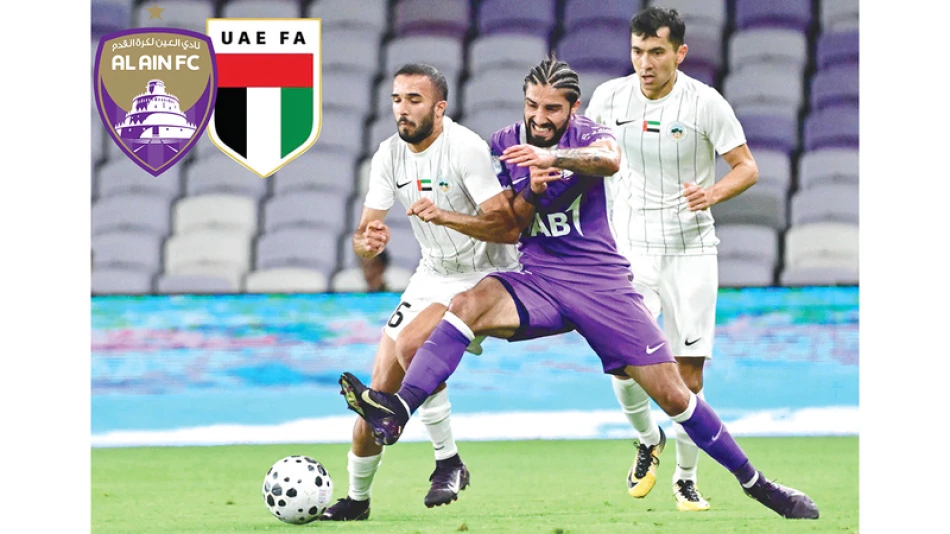
Football Association and Al Ain Crisis Nears Resolution
UAE Football Crisis Defused: Al Ain and Football Association Step Back from Public Feud
After days of heated public exchanges between Al Ain FC and the UAE Football Association over controversial refereeing decisions, both parties are now actively seeking to de-escalate tensions through formal diplomatic channels. The dispute, which threatened to damage UAE football's reputation domestically and internationally, appears to be moving toward resolution as institutional mechanisms replace media warfare.
From Public Spat to Private Diplomacy
The UAE Football Association has received a measured formal letter from Al Ain FC that lodges technical complaints about refereeing decisions during their recent match against Al Bataeh in the first round of the ADNOC Pro League. Unlike the club's initial inflammatory public statement, this correspondence adopts a professional tone while still registering strong objections to specific officiating errors that nearly cost the team crucial points.
The letter strategically balances criticism with praise, acknowledging the Football Association's efforts in developing the game and commending its early adoption of VAR technology in the region. This diplomatic approach signals Al Ain's desire to voice concerns without escalating the conflict further.
Football Association's Measured Response
The Football Association's reply maintained the same calm tone, confirming that all observations are being considered as part of ongoing strategic plans to develop the refereeing sector. The response emphasized continuous review processes for officiating crews while thanking Al Ain for their contributions to football development.
This institutional approach suggests the Association will handle the matter through internal mechanisms rather than engaging in further media battles—a significant shift from their initial strong public rebuke.
The Original Flashpoint
The crisis erupted following Al Ain's match against Al Bataeh when the club issued a public statement criticizing the officiating. The Football Association responded forcefully, rejecting any questioning of referee integrity and threatening legal action. Al Ain then escalated further with another statement condemning the Association's response and referring the matter to relevant authorities.
This public exchange highlighted the delicate balance between clubs' rights to voice legitimate concerns and maintaining institutional respect—a challenge faced by football associations worldwide when dealing with high-profile clubs.
Broader Implications for UAE Football
The swift move toward de-escalation reflects both parties' awareness that prolonged public disputes can damage the UAE's growing football reputation. As the country positions itself as a regional sports hub and seeks to attract international tournaments and investments, maintaining professional standards in dispute resolution becomes crucial.
The UAE's football infrastructure has gained international recognition, particularly through early VAR adoption and hosting major tournaments. Public feuds between prominent clubs and the governing body could undermine these achievements and affect the league's commercial attractiveness.
On-Field Focus Returns
Al Ain coach Vladimir Ivetic faces the immediate challenge of refocusing his squad on football matters ahead of Saturday's match against Dibba in the league's second round. The Serbian tactician must ensure the off-field controversy doesn't affect team performance as Al Ain seeks to return to domestic trophy contention after an extended absence from major honors.
The club has resumed training with emphasis on technical preparation, attempting to separate external distractions from on-field objectives—a familiar challenge for coaches managing high-profile clubs during institutional disputes.
Setting Precedent for Future Disputes
This resolution approach could establish important precedents for handling similar conflicts in UAE football. The shift from public statements to formal correspondence demonstrates institutional maturity and suggests both parties recognize the value of preserving relationships while addressing legitimate grievances.
As UAE football continues developing its commercial and competitive profile, maintaining professional dispute resolution mechanisms will be essential for long-term credibility and growth.
Most Viewed News

 Sara Khaled
Sara Khaled






